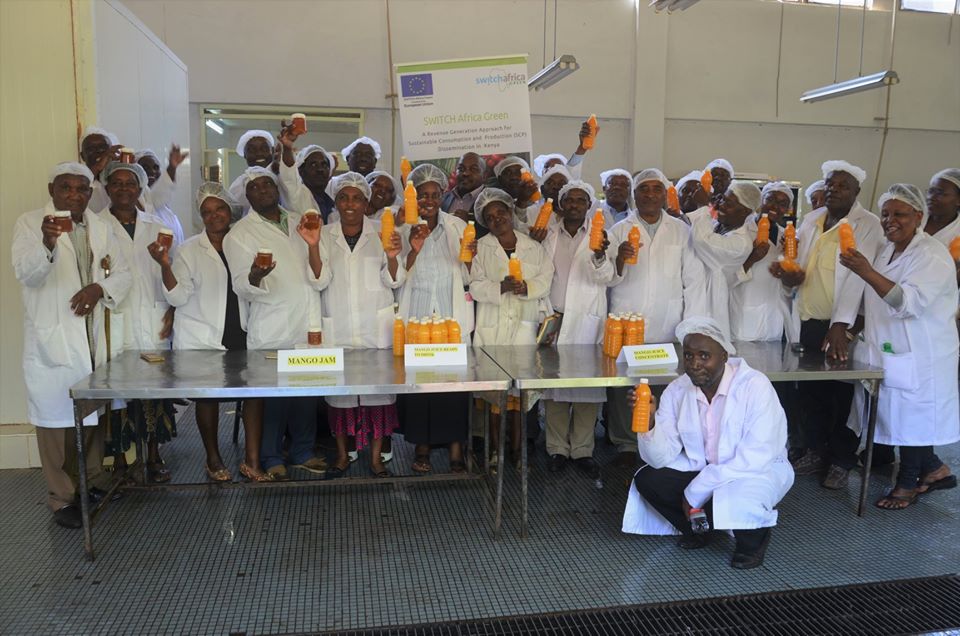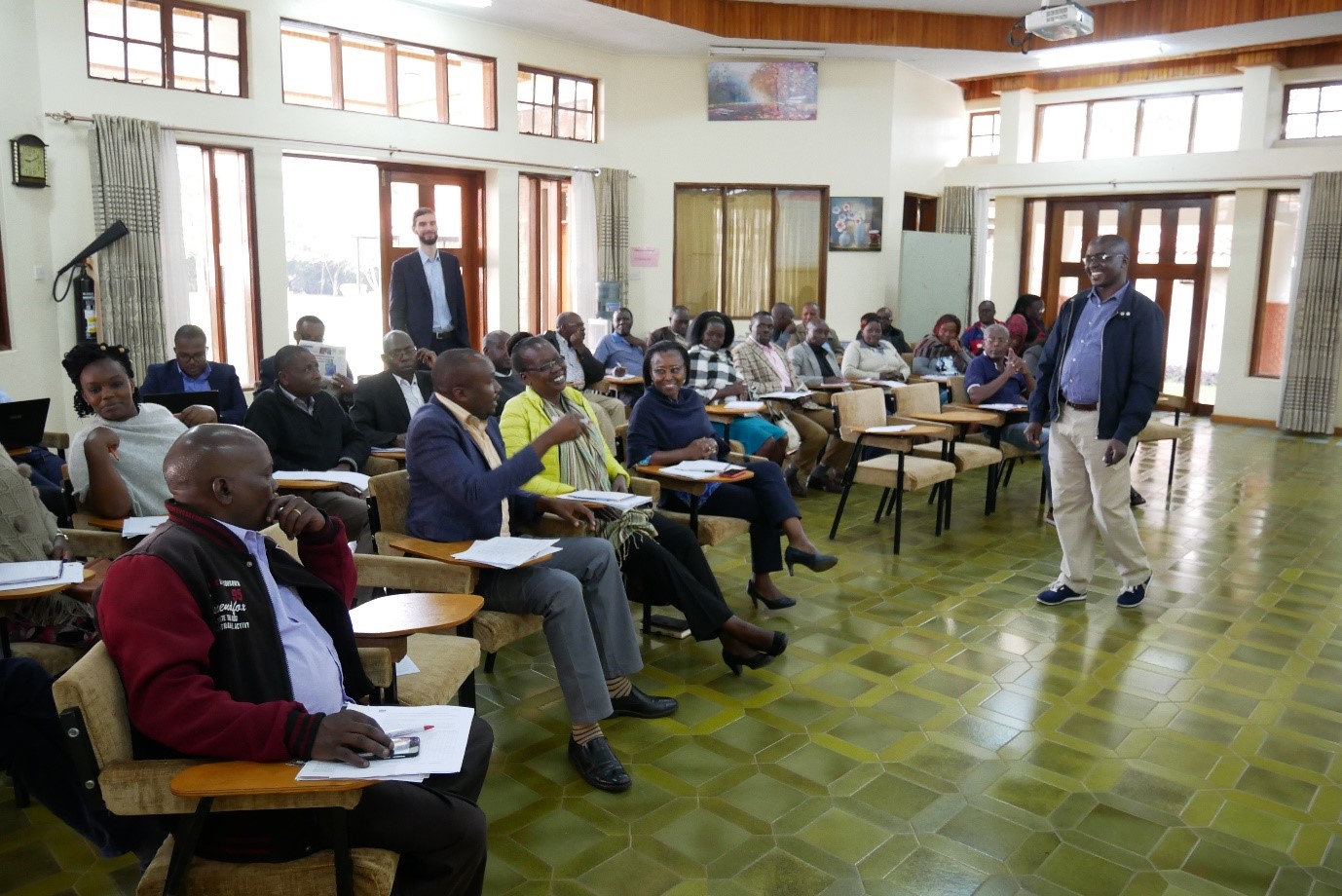
The agricultural sector in Kenya accounts for 65% of export revenues and it provides employment for more than 80% of its population. Agriculture drives the non-agricultural economy including manufacturing, tourism, education and other social services. The sector is particularly key in achieving the current Government’s Big Four Agenda unfortunately, it still suffers from limited access to extension services, access to credit and technology.
In addition, the advent of climate change, and the impact it has on the volume and reliability of rainfall, is affecting farmers’ yields and consequently influencing the entire food value chain, constraining its production potential. To face these challenges, Kenyan Micro, Small, and Medium Enterprises (MSMEs) in the food value chain are increasingly turning to sustainable consumption and production (SCPs) practices adopting modern green technologies to overcome the challenges of climate change while at the same time striving to become more competitive domestically and internationally.
For the past two and a half years, E4Impact has been one of the implementing partners in the Green to Grow project consortium led by Etimos Foundation with the overall objective of contributing towards reducing the environmental footprint of Kenyan MSMEs in the coffee, mango and dairy value chains in the country while strengthening their ability to compete in local and international markets.

The European Union funded project SWITCH Africa Green is aimed at supporting African countries actively engaged in the transition to an Inclusive Green Economy, and in promoting a shift to sustainable consumption and production (SCP – SDG 12) practices, that collectively will contribute to poverty eradication and sustainable development in the region. This is the framework in which the Green to Grow project has been implemented in Kenya with dissemination in Uganda and Ethiopia drawing on the expertise of Kenyan and international partners, which are: Kenya National Chamber of Commerce and Industry, Stockholm Environment Institute (SEI) Jomo Kenyatta University of Agriculture and Technology (JKUAT), Tangaza University College, Etimos Foundation, Cassa Padana and SEFEA Consulting.

E4Impact trained the 104 value chain actors on building green business models, management skills, impact measurement and they were also taken through relevant SCPs practices, as well as value addition and access to markets by Stockholm Environment Institute and JKUAT respectively. The participants were drawn from 17 Counties and 35% of participants made up of women.

“Thank you so much for the training and conference which has really impacted how we do things and how we think as entrepreneurs in value chains, out of this we are able to pull together dairy farmers to form a Dairy Cooperative Union, we hope you can advise and support Odupa for stronger and sustainable Dairy Cooperative initiatives in Narok County” Julia Koikai an entrepreneur from a women-owned milk-processing business in Narok after participating in the three-part training.
E4Impact is leading the dissemination of the key learnings and best practices to MBOs, Government agencies, academic and research institutions in Uganda and Ethiopia creating additional value to the already existing networks in both countries.
Isabella Tenai
